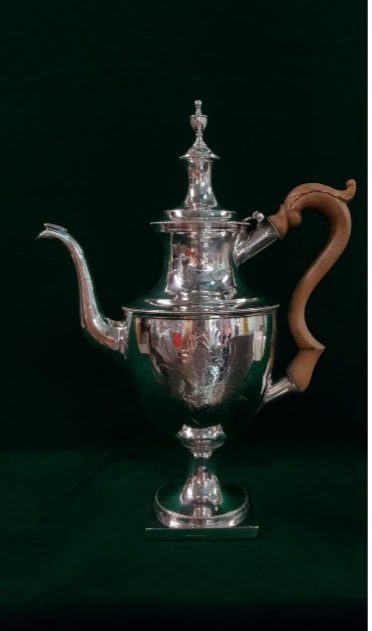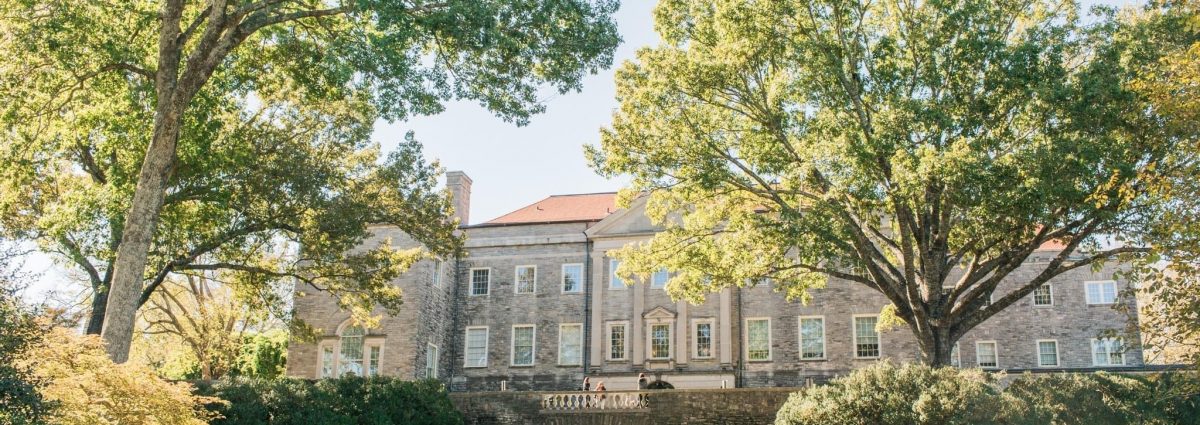Published: September 29, 2021
September 29 is National Coffee Day! Coffee and the Cheek name are almost synonymous. Leslie Cheek, Sr.’s cousin, Joel Cheek, was a founding member of Cheek-Neal Coffee and the creator of the Maxwell House Coffee Blend. Leslie’s investments in Cheek-Neal coffee provided much of the funding for Cheekwood, once the company was sold to General Foods in 1928.
The legacy of coffee is built into Cheekwood and reflected in the Museum’s collection. Within the collection are several of Leslie Cheek, Sr.’s mustache mugs along with silver and porcelain coffee services. One coffee service of interest is a colonial American silver tea and coffee service made between 1790-1800.
This service (1997.9.2a-e) contains five pieces with the maker’s marks of four separate individuals: Samuel Williamson (1772-1843), James Musgrave (1765-1846), Liberty Browne (1776-1831), and George Aitken (1765-1832).
Aesthetic thought at the time sought to define beauty with acute and objective laws and connect beauty to divinity. It was theorized that if the laws and functions of the world were a divine creation, then so were the laws that defined beauty. Thus, any object with beauty, served a purpose beyond its functionality.
One important and desirable quality was that of smoothness. Creating a smooth silver object is difficult and skilled task. Early American silversmiths used planishing hammers to remove any marks made during the rising and shaping process. Every imperfection was hammered, buffed, and polished away to create the ideal, smooth surface of colonial silver. Through aesthetic thought and expert silversmithing, a smooth coffee pot was a mastered, godly object.
The artistry and technique of colonial American silversmiths is evident in Cheekwood’s silver Coffee Pot (1997.9.2.a) made by Samuel Williamson (1772-1843).

Members can stop by Café 29 on September 29 to receive a FREE cup of Maxwell House coffee in celebration of Member Appreciation Week!
